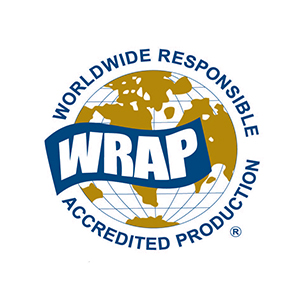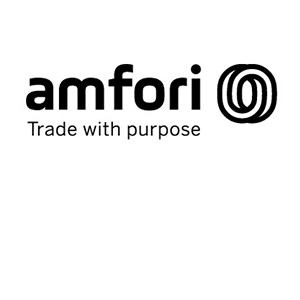Accreditations
BLUESIGN

The bluesign System is a solution for brands, manufacturers and chemical suppliers to improve sustainability throughout the entire textile value chain and minimize negative impacts on people and the planet.
Every item carrying a bluesign accreditation has been manufactured to strict safety and environmental requirements. Known as the bluesign Criteria, these are the highest standards in the industry.
Factors taken into consideration for this accreditation are as follows:
- Chemical consumption
- Carbon emission
- Water consumption
- Energy consumption
- Worker health & safety
WRAP

The WRAP Certification Program’s objective is to independently monitor and certify compliance with the below standards, to ensure that sewn products are being produced under lawful, humane and ethical conditions. Participating facilities voluntarily commit to ensuring that their manufacturing practices will meet these standards, and further commit to passing along, on their part, the expectation that their contractors and suppliers likewise comply with these standards.
The WRAP Accreditation consists of twelve key principles:
- Compliance with Laws and Workplace Regulations
- Prohibition of Forced Labor
- Prohibition of Child Labor
- Prohibition of Harassment or Abuse
- Compensation and Benefits
- Hours of Work Limitation
- Prohibition of Discrimination
- Health and Safety
- Freedom of Association and Collective Bargaining
- Environmental Regulations
- Customs Compliance
- Facility Security
SEDEX

SMETA is the world’s leading social audit. They use a social audit methodology to provide visibility of working conditions in their supply chain and provides the factory with a Corrective Action Plan (CAPR) to help them improve working conditions. SMETA conducts high quality audits to assess the following standards to ensure responsible business practices and social compliances are being met.
- Labour Standards
- Health and Safety
- The Environment
- Business Ethics
AMFORI

Amfori BSCI provides visibility over the production and measures social performance to drive improvements across supply chains through their strong code of conduct. The code of conduct aims to set up the following 11 values and principles to Amfori BSCI members to ensure they are striving to implement the principles in their supply chains.
- The rights of Freedom of Association and Collective Bargaining
- No Discrimination
- Fair Remuneration
- Decent Working Hours
- Occupational Health and Safety
- No Child Labour
- Special Protection for Young Workers
- No Precarious Employment
- No Bonded Labour
- Protection of the Environment
- Ethical Business Behaviour
GLOBAL RECYCLED STANDARD

The Global Recycled Standard (GRS) is a voluntary product standard for tracking and verifying the content of recycled materials in a final product. The standard applies to the full supply chain and addresses traceability, environmental principles, social requirements, chemical content and labeling. GRS covers processing, manufacturing, packaging, labeling, trading and distribution of all products made with a minimum of 20% recycled material.
Certification Features
- Recycled Polymer Materials - Contains a minimum of 20% recycled content
- Ethical - Avoids questionable or unethical sources
- Labor Protections - Ensures that workers are treated fairly according to internationally recognized (ILO) labour standards
- Supply Chain Management - Introduces supply chain risk management tools to improve sourcing strategies and prevent destructive environmental practices
- Environmental Impact Assessment - examines the environmental impacts associated with product manufacturing
- Chain of Custody – Transaction certificates follow the material through the supply chain